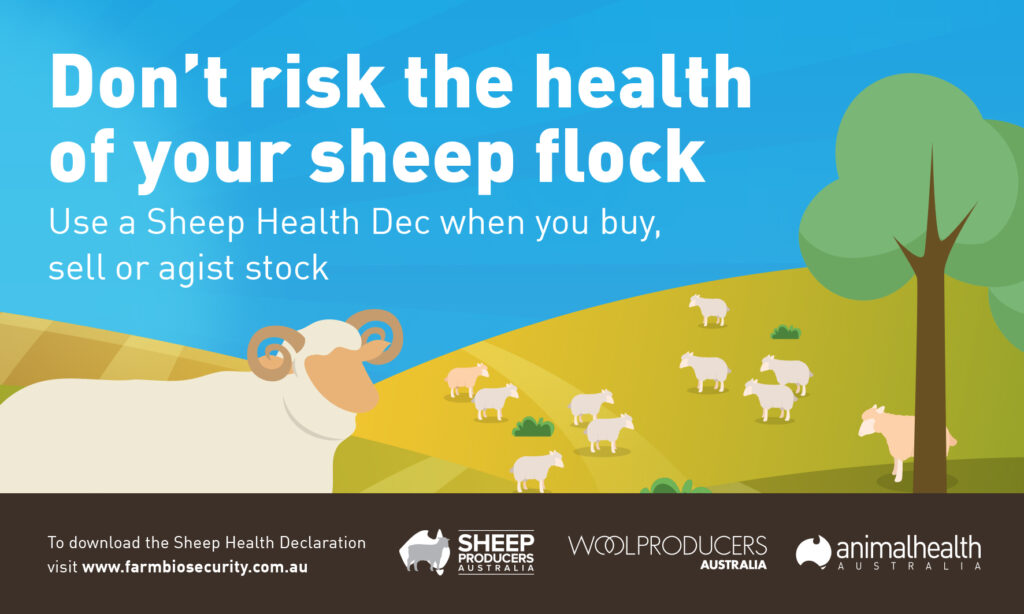Read the latest information on
Foot-and-mouth disease

You wouldn’t buy a car without checking its service history. So, don’t buy a sheep without checking its full woolly record.
Like cars, sheep come with their own histories and health records, which are crucial for making informed decisions about bringing them onto your property.
Enter the National Sheep Health Declaration, your go-to document for ensuring you’re dealing with healthy, well-managed sheep.
Sheep producers use an NSHD to declare their flock’s health and biosecurity status when selling sheep. It details essential information about the flock’s health, including biosecurity measures, disease status, and treatments received.
NSHDs are mandatory for all sheep movements into and within South Australia and for moving sheep into New South Wales and Tasmania.
National Sheep Health Declaration forms can be downloaded from Animal Health Declarations.
Producers accredited with the Livestock Production Assurance (LPA) Program can complete NSHDs through the electronic National Vendor Declaration (eNVD) app by Integrity Systems Company.
An NSHD is the most important disease risk management tool producers can use when buying or agisting sheep.
By insisting on an NSHD, you help prevent the spread of significant diseases such as Johne’s disease, footrot, and lice.
Besides maintaining overall flock health and productivity, having this knowledge before buying can save you time, money, and resources treating and managing outbreaks.
Importantly, NSHD means more transparency when buying and selling sheep, serving as a legal document that records the health status of the sheep at the time of sale. This can protect buyers and sellers in case of disputes after the transaction.
Biosecurity is everyone’s responsibility. Always request a copy of an NSHD before buying or agisting livestock and use the information provided to determine the health risks associated with the animals for sale.
By insisting on this declaration, you can make informed decisions, prevent disease outbreaks, and reduce management costs. This all adds up to a healthier, more productive sheep industry for everyone.